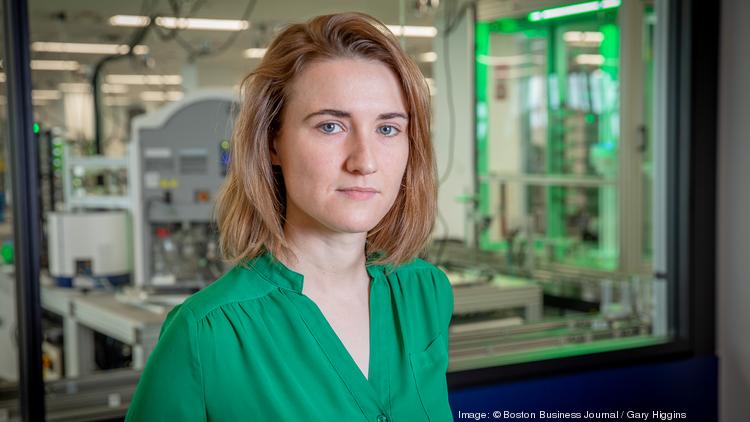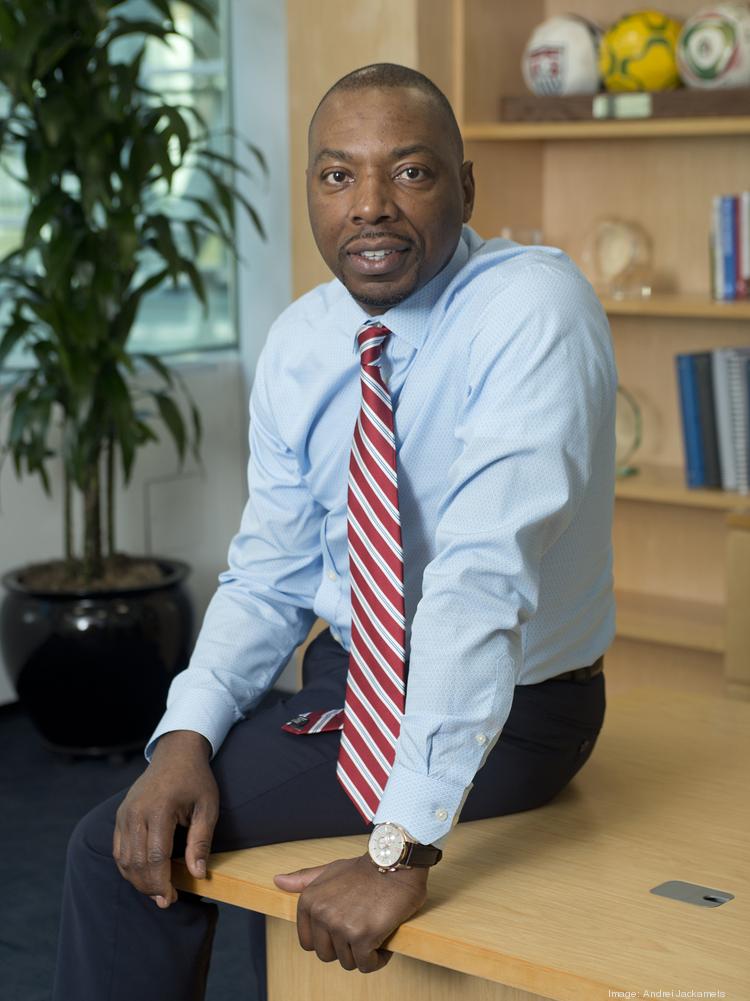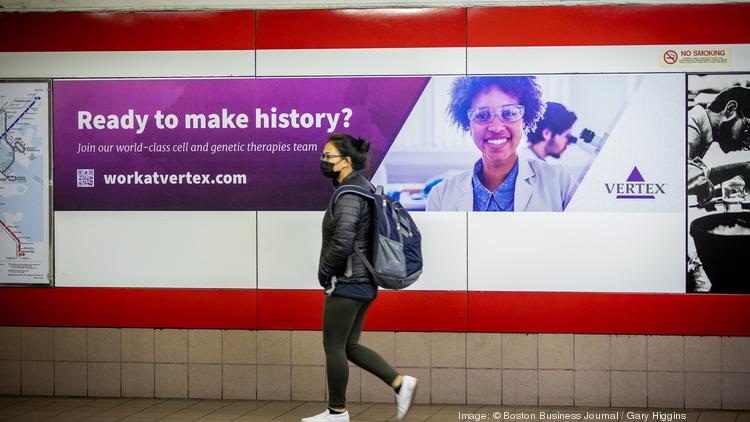News
Experts expect that 40,000 more life science jobs are coming to Mass. Here’s how the state is trying to fill them.
By Rowan Walrath – Life Sciences Reporter, Boston Business Journal | Mar 4, 2022, 5:00am EST
Jennifer Wysocki’s undergraduate education was meant to prepare her for a career in the arts and museum studies. But after several years raising funds for nonprofits, by about 2012, she says she found herself thinking, “There’s got to be more than this.”
Wysocki applied to the health care administration program at Quincy College, expecting to learn the basics of medical billing and coding and expand her skill set beyond the nonprofit world. The two-year college offered classes in medical ethics, insurance-claims procedures and database management, but what she found herself most energized by was a course in anatomy and physiology.
After a lifetime in the liberal arts, Wysocki surprised herself by falling in love with science.
“I said to myself, ‘Oh, my God. I never thought I could do science,’” Wysocki said. “I always thought of myself as an arts person; therefore, I could only pursue arts. I took this class, and I thought, ‘I want more.’ I switched out of the program. I took as many science classes as I could.”
Eventually, Wysocki’s chemistry instructor suggested she look into Quincy College’s biotechnology program. There, Wysocki found her groove, learning and then tutoring in chemistry and biology. She was hired in the program office as an administrative assistant, and then she recorded the details of laboratory experiments. In 2017, Wysocki graduated summa cum laude with a certificate in biotechnology and compliance. That same year, she was hired by Karyopharm Therapeutics Inc. (Nasdaq: KPTI) on a contract basis, which would kickstart a yearslong career as a contract technical and medical writer, as well as a quality-assurance specialist, for some of the fastest-growing pharmaceutical companies in Massachusetts, including Moderna Inc. (Nasdaq: MRNA).
Hiring is difficult in all industries, but with so many new jobs being added in the life sciences, employers are in a tighter bind. Last summer, the Massachusetts Biotechnology Council estimated that the state’s biopharmaceutical industry will grow by at least 40,000 jobs by 2024. In response, biotech training programs like those at Quincy College are gaining steam to help meet the demand.
MassBioEd CEO Sunny Schwartz, for one, is hoping that employers will begin to rethink their priorities when it comes to hiring: prioritizing a candidate’s skills over their level of higher education, investing in the young people who will feed into the so-called pipeline, and diversifying a workforce that has historically been lily-white.
“What we’re doing at MassBioEd is reaching out to communities and places that employers just don’t know about,” Schwartz said. “Employers need people now, and these are jobs that don’t require a college education. In addition, we need to be thinking about how to expand the pipeline of jobs that do require a college degree to more diverse people.”
Beyond the four-year degree
Bunker Hill Community College offers an associate’s degree in science with a biotechnology concentration, and Roxbury Community College offers a one-year certificate program in biotechnology and biomanufacturing. Outside of academia, the Massachusetts Life Sciences Center has a well-established internship program, the Benjamin Franklin Institute of Technology is in the process of setting up a biomanufacturing training certificate with Ginkgo Bioworks (NYSE: DNA), and the Massachusetts Biotechnology Council’s workforce-training arm, MassBioEd, is in the first year of its apprenticeship program.
Wysocki is part of this new movement away from bachelor’s and master’s degrees and toward proficiencies the market needs now. She is an adjunct instructor at Quincy College, where she teaches a course in technical writing as well as a biotech seminar.
“Can you believe it?” Wysocki said. “The girl who, in high school, could not stand going to chemistry class. Fast forward to my Quincy College days, and I’m working.”

GARY HIGGINS / BOSTON BUSINESS JOURNAL
Internship programs are another route to connecting nontraditional candidates with jobs. That’s how Lily Fitzgerald first started working at what was then a 26-person synthetic biology company called Ginkgo Bioworks (NYSE: DNA) in 2014. She had found her way to the company through the MLSC Internship Challenge, which reimburses small companies for running internship programs with the help of the center.
“I would never have come across Ginkgo on my own. It was so lucky: At UMass, I studied environmental science, and all my research was in a molecular biology lab,” Fitzgerald said. “I saw [Ginkgo was] doing work on environmental applications of molecular biology… I thought, ‘Maybe my interests do make sense, and maybe there’s a fun way for me to put intersecting interests together.’”
Fitzgerald stayed on through a second, post-baccalaureate internship, then became a full-time employee. She left briefly to earn a master’s degree with MIT’s technology and policy program, then rejoined in early 2020 to assist the company’s budding public-policy efforts. Today, Fitzgerald is the associate director of policy and partnerships for Ginkgo. Among the first partnerships she established is a program with the BFIT that, in some ways, mirrors her own experience as an MLSC intern, setting up a new pipeline for people to learn biomanufacturing skills.
Beginning in fall 2023, with Ginkgo’s help, BFIT will offer an associate’s degree in biotechnology manufacturing. The program is expected to be based at the Nubian Square Life Science Training Center, where BFIT says it will serve students looking to go into many of the technical and trade careers that are hiring. Fitzgerald says Ginkgo chose to partner with BFIT not only because the school primarily serves first-generation college students, students from socioeconomically disadvantaged backgrounds and those from “communities who have historically been excluded from the biotech sector,” but because BFIT has a high job-placement rate for its graduates. Ginkgo itself will hire many of the new certificate holders, Fitzgerald said.
“[We want to make] sure there are more people trained out there and that we can hire them, but we hope this has, even before then, a big impact in the community,” she said. “We’d love to see more programs created at the associate’s degree level, at the certificate level, that can amplify and build on this.”
Public sector takes notice
Boston City Council’s Committee on Small Business and Workforce Development convened a two-and-a-half-hour hearing in December on the subject of biotech workforce training. Schwartz presented, as did MassBio CEO Joe Boncore. They were joined by various academic leaders as well as representatives from Mayor Michelle Wu’s office.
There is excitement around the idea of setting up and expanding programs like the BFIT associate’s degree, Quincy College’s programs, MassBioEd’s apprenticeships and MLSC’s internships. While all of these are certainly ripe for additional investment, these programs will only be effective if employers actually hire the people who are emerging from them, as Trinh Nguyen, director of the Mayor’s Office of Workforce Development, said during the hearing.
“You can train workers to death,” Nguyen said, but that’s “only 20% of the equation. Eighty percent is strong employer engagement, commitment to quality jobs.”
Nguyen and her colleagues in the public sector also worry that Black and Brown workers will be either left out of the new workforce entirely or relegated to biomanufacturing positions, which are generally less prestigious and lower-paying compared to research and development.
“We are hoping that the most recent hearing on workforce development in the biotech space will not be our last, because there is clearly a lot of work to do even to ensure that everyone is at the table,” said Boston City Councilor-at-Large Julia Mejia, who chairs the committee that called the recent hearing. “Moving forward, our hope is to center Black and Brown biotech employees, in addition to employers, to get to the bottom of an issue that is plaguing a number of professional spaces: The need to hire a workforce that more accurately reflects the diversity of our city.”
As of last June, according to a report from MassBio, the biopharma workforce in Massachusetts comprised just 15% non-Asian people of color, despite that broad group making up 32% of the state’s population. (MassBio counted Asian workers in a separate category from other workers of color because, as the group put it, “Asian employees are regularly overrepresented in our industry as compared to the general population.”)

COURTESY OF SANOFI US
Some employers are well aware of the problem. Clint Wallace, head of human resources for the North American division of Sanofi ADR (Nasdaq: SNY), points to a multitude of factors. One is implicit bias — conscious or unconscious racism by white hiring managers. Another comes back to the so-called pipeline problem: People of color are underrepresented in talent pools employers traditionally draw from, like elite higher education institutions and even other companies, as recruiters often poach talent from one another to find more experienced workers.
“In the pharmaceutical business, we have a tendency to be very conservative with regards to the skills and capabilities required. What we have noticed over time is when we go to market, and I think it’s — no pun intended — a disease of this industry. We overprescribe what qualifications we’re looking for,” Wallace said. “We’re now thinking about skills and capabilities that are going to enable the business strategy of today … getting leaders to be comfortable with being uncomfortable.”
Sanofi is among the largest life sciences employers in Massachusetts, with 4,000 employees in the state as of September, according to Business Journal research. It, too, is growing: There are nearly 500 Massachusetts-based job openings on Sanofi’s career site.
The company is working to diversify. It is an industry partner for Quincy College’s biotech program, it has an internship program that will hire about 45 people this year, and it has in-house mentoring and employee resource groups to provide professional development opportunities for existing employees.
Others have joined in similar efforts. Vertex Pharmaceuticals Inc. (Nasdaq: VRTX) since 2012 has had a comprehensive STEM program for Boston Public Schools students, and it has partnerships with organizations like Hack.Diversity and the Biomedical Science Careers Program. Vertex currently employs nearly 3,000 people in the Bay State and will soon hire hundreds more at its new Cell and Genetic Therapies facility in the Seaport District. Moderna Inc. (Nasdaq: MRNA), among the fastest-growing companies in the state, already counts 35% of its U.S. workforce as being from racially or ethnically diverse backgrounds, and is “looking for individuals from a diverse array of backgrounds” as it grows both in Cambridge and in Norwood, chief human resources officer Tracey Franklin said.

GARY HIGGINS / BOSTON BUSINESS JOURNAL
Pfizer Inc. (NYSE: PFE) is one of several local biopharma companies sponsoring MassBioEd’s first apprentice cohort this year, which formally launched in September with 30 apprentices. Bristol Myers Squibb (NYSE: BMY), Alexion and ArrantaBio have also invested in the program, as has the Massachusetts Life Sciences Center.
Schwartz, the organization’s CEO, hopes to triple or quadruple the number of apprentices in the second cohort, based on how employer demand shakes out.
“Our model is really expanding to people who, if that person applied to that employer directly, they would never get looked at. They would never get an interview,” Schwartz said. “We give them basic classroom education, they go to on-the-job training for a year, and then they’re done. The hope is they would stay on full time at that employer after that apprentice year.”
Apprentice programs
At Pfizer Inc.’s eight-building laboratory and manufacturing campus in Andover, there are currently three apprentices learning the ropes of drugmaking alongside their more experienced colleagues.
Oscar Travis, Tina Ferrer and Gustavo Ferreira Castilho have been working at the Andover site since October. Before that, each of them spent five months learning basic biomanufacturing skills like cell culturing and pipetting from instructors at Northeastern University, which partners with MassBioEd on the apprenticeship program.
Ferreira Castilho had been familiar with the life sciences industry. He volunteered at the Boston Children’s Hospital in the summer of 2017, where he saw, as he put it, “the end side — where the medicine gets to patients.” But the apprenticeship has opened a potential career path to get involved much earlier in the process, when that medicine is still being developed, and provided an alternative to the retail jobs in consumer electronics he had been working.
Travis, who comes from a similar background working at a grocery chain, agreed.
“Looking at a bottle on a shelf with medication, it’s hard to realize how much teamwork and coordination actually has to go into manufacturing stuff like that,” Travis said. “The number of moving parts that are actually involved in stuff like this is astronomical.”
Ferreira Castilho, Ferrer and Travis will all be at Pfizer until the fall. At that point, they may enter the pool of jobseekers in Massachusetts’ ever-growing life sciences industry.
But ask any one of them their ideal post-apprenticeship scenario, and they’ll tell you: “We stay.”

 MassBioEd
MassBioEd